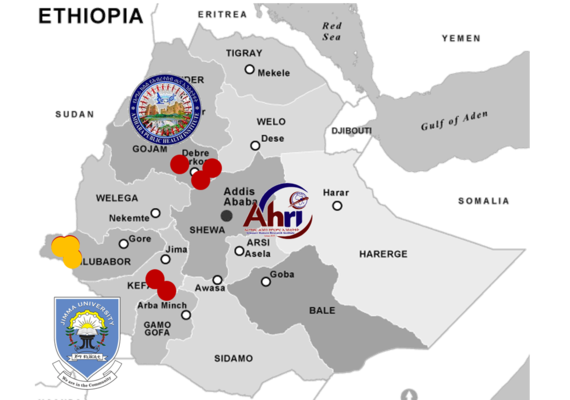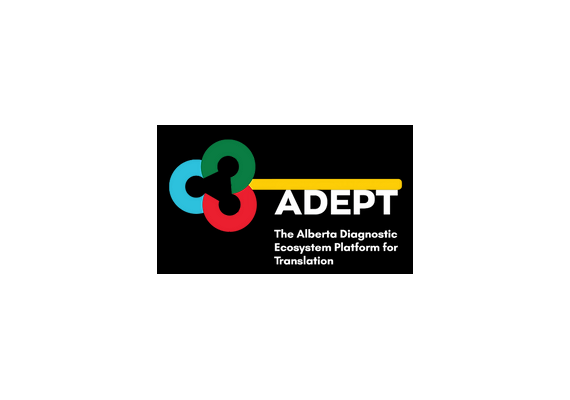Pillai Lab Research Projects

Project Summary
Malaria can cause anemia, preterm delivery, low birth weight, and fetal loss.
Current tests have limited sensitivity. By using LAMP testing during pregnancy, infection may be detected & treated earlier, improving outcomes for mothers and newborns.
Malaria is a eukaryotic pathogen (Plasmodium spp.) endemic in 85 countries, transmitted by mosquitos, with 241 million cases in 2020, and 627,000 deaths.
33.3 million pregnant women are at risk each year. Only 32% receive preventative care.
Peripheral parasitemia is low due to placental sequestration of the parasite, meaning that traditional diagnostic techniques relying on microscopy and rapid diagnostic tests (RDTs) have limited sensitivity.
Molecular techniques such as loop-mediated isothermal amplification (LAMP) are able to detect sub-microscopic infections, and are much more sensitive.
The study is being conducted in collaboration with AHRI, Jimma University, and APHI
~2500 pregnant women were enrolled in the early stages of pregnancy and tested using LAMP combined with standard of care testing compared to those that were tested using standard of care diagnostics alone.
Participants are followed throughout their pregnancy, treated for malaria if detected, and biometric data of both mothers and newborns was recorded to see if LAMP testing would lead to improved outcomes for mothers and newborns.

Project Summary
Antibiotic content and resistance in lakes and rivers in the Philippines is poorly studied.
Using a One Health Intervention, antibiotic resistance in and surrounding Laguna Lake will be assessed, and control practices will be implemented to reduce it.
Laguna Lake (900 km2, 2.5 m deep), the largest lake in the country, is used for fish farming, drinking water, irrigation, power, industrial cooling, flood control, and recreation. It is also a waste drain for the surrounding areas.
For decades, it has been inundated with pollution from agricultural, industrial and urban wastewaters containing traditional and emerging contaminants including antibiotics and pathogens.
In Southeast Asia, ciprofloxacin, clarithromycin, sulfamethoxazole and oxytetracycline have been found in environmental waters. Penicillin G, hormones, and bisphenol A were also found in Laguna Lake.
Backyard farms are found in the lake area. Despite policies controlling veterinary antimicrobials, implementation and enforcement is weak, and surveillance is lacking. Campylobacter spp. and Salmonella spp. isolated from retail meat have been found quinolone and multidrug resistant, respectively. Several hospitals are also located on the border the lake with potential effluents feeding the aquatic systems.
- This lake environment can be a showcase in demonstrating practical One Health interventions in the local settings. The findings and outcomes of this project can be used in replicating methods and programs on antibiotic resistance reduction in the Philippine environment and in similar areas in Southeast Asia.
Using a One Health Intervention approach, the Pillai Lab is leading a 5 country consortium to assess antibiotic resistance in and surrounding Laguna Lake and implement control practices to reduce it.
ENVIRONMENTAL HEALTH: Environmental antibiotic resistance will be assessed in the lake and surrounding effluents, and treated using light-assisted wastewater treatment
ANIMAL HEALTH: Assessment and interventions will be performed for reducing antimicrobial resistance in the veterinary setting
HUMAN HEALTH: Introduction of an antimicrobial stewardship program and point of care testing in hospitals adjacent to Laguna Lake to reduce antimicrobial resistance in the area

Project Summary
Vector-borne and respiratory infectious diseases, along with antimicrobial resistance (AMR), are major global health concerns with significant implications for individuals and communities.
By developing affordable LAMP diagnostics integrated with machine learning (ML), enhanced accuracy and quantitative assessments of infection burden are provided —crucial for predicting symptoms, assessing severity, monitoring treatment, and informing public health decisions.
RT-LAMP (Reverse Transcription Loop-Mediated Isothermal Amplification) offers a faster, simpler alternative to RT-PCR, microscopy, and microbial cultures for detecting viral, parasitic, or microbial DNA/RNA. However, its qualitative nature can lead to ambiguous results and does not assess infection severity.
The ML model, trained on diverse sample data, will expand to predict patient symptoms and outcomes, accessible via a point-of-care smartphone app, aiding physicians in making informed decisions.

ADEPT
Through partnerships and unique clinical resources, ADEPT can help advance your technology through the innovation journey. By aligning diagnostics technologies with Alberta’s healthcare system, ADEPT reduces barriers to adoption and implementation to improve disease management through precision medicine.
See more at https://www.albertalabdiagnostics.ca/




